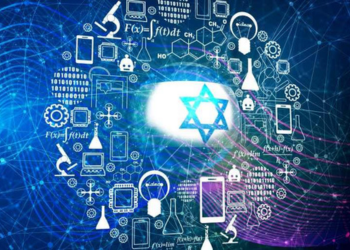It is now Autumn here in Australia, the season of transformation and change, a time for harvesting and sharing our knowledge and wisdom with younger generations. It is a time for being grateful, embracing a more accepting and peaceful pace, and appreciating the fruits of our labours and the rich tapestry of our past experiences, including the key insights from my Israeli start-up immersion and the foundng of ImagineNation.
Pause-retreat-reflect-reboot
It is an opportunity for retreat and reflection, acceptance of life’s impermanence, and, often, significant life alterations, shifts and significant changes.
The current crisis in Israel has caused me to sit still, pause, retreat, reflect, immerse myself in, and percolate the learnings, wisdom, impermanence, and significant life alterations, shifts and changes my husband and I made when we lived in Israel for six years.
Israel is at the front line, having to fight for its very existence, sustain its economic stability, to fight to preserve its civil society, and ensure all peoples have an enduring and sustainable future.
Why will Israel ultimately win the war against Hamas Terrorists?
Because it is the Start-Up Nation, it ranks first in the world in terms of the number of startups per capita, R&D expenditures per cent of GDP, venture capital investments per capita, and unicorns per capita.
Rather than try to deny it, we and the world have much to learn from this innovative economic miracle.
During our six years in Israel, I created an Israeli start-up to reinvent corporate learning. Over the past ten years, this misadventure has enabled me to research and name what I consider to be the five key attributes that make Israel and Israeli Start-ups so unique and what to leanr from them.
Here is a short summary of what I learned as my key insights from my Israeli start-up immersion:
- Israelis collide with what’s Necessary to survive with what’s Possible to thrive.
Israel, since its beginnings, has, and still is, more so today, driven by a strong need for survival.
This is balanced by an equally strong inherently Jewish cultural need for “tikkun olam” (our human responsibility for fixing what is wrong with the world), where innovative start-up entrepreneurs seek to contribute something of significant value to humanity and gain personal satisfaction by meaningfully serving the common good. To go beyond satisfying individual needs and giving something of value that can help heal or repair the world or make it a better place for everyone.
We can learn from Israelis how to practice “Tikkun Olam” by contributing meaningful acts of kindness and generosity towards ourselves and others in our families, communities, and to society as a whole, and not play the “right/wrong” game.
- Israelis apply Disagreement and Nonconformity to drive creativity and innovation
Israeli culture has always been exemplified by constant “conflict” and argumentativeness at all levels: between individuals, peoples, groups, the government, and, of course, its hostile neighbours.
On the one hand, this creates, for some people, anxiety, anger, stress, and tension, often resulting in division and exclusion, like what is happening right now between many Secular and Haredi Israelis and between the Hostage families and their Supporters and the Government.
On the other hand, it also creates constant challenges to conformity and the status quo (no matter what), manifesting as the tension required to catalyse creative energy for change and innovation.
Israelis are experts and masters at deviating from conventional ways of doing things, as well as masters at improvisation and creative problem-solving.
We can learn from Israelis to see conflict as a creative catalyst and an opening for positive change in our lives.
- Israelis use the power of adversity, positivity, optimism, and individuality to be hopeful and happy
Israel has a seriously traumatised, displaced, and highly stressed population that is being singled out, demonised, and marginalised globally whilst it is at war with its terrorist neighbours.
Strangely, Israel only dropped down one spot to fifth place in the World Happiness rankings for 2024, though the findings predated the Hamas massacre of October 7 and the subsequent war against the Hamas terrosirsts in Gaza.
Israelis are adaptive, resilient, and defiant in facing danger, conflict and adversity. Recent polling in Israel indicates a strong sense of national unity among Israelis in the aftermath of Hamas’ attack. While trust in political leadership remains low, overall confidence in the military and police is high.
We can learn from Israelis how to deal with adverse situations by being resilient, optimistic, and positive, even under the most extenuating circumstances.
- Israel is emerging with a new approach to 21st-century leadership
When I arrived in Israel in 2010, I faced a harsh new reality that defied my previous organisational roles – finding that most of what I had been taught and experienced about high-performance organisational cultures, leaders, and teams was no longer relevant.
This is aptly illustrated by Dov Frohman, founder of Intel Israel, in his book, “Leadership the Hard Way” stating that “leadership in today’s economy is a lot like flying a plane through a thunderstorm.” A way of living and working that can truly facilitate the learnings of leadership. How to go against the current, fight conventional wisdom, and embrace the unexpected. It is about trusting oneself and valuing intuition, principles, and imagination as much as hard skills and analysis.
We can learn from Israel how to lead differently, by adapting, changing and overcoming the range of violent thunderstorms currently raging against the changes the world so deperately needs to make right now.
- Israelis co-operate internally to compete and win externally
The flourishing Israeli innovation ecosystem is one of the key critical success factors behind Israeli innovation and start-up entrepreneurship. This includes the cluster of world-class universities, government agencies, venture capitalists, large organisations, the (IDF) Israel Defense Forces, Start-Ups, and the collaborative ecosystem that connects them.
We can learn from Israel how to cooperate and collaborate under pressure for the good of the whole community and civil society to “out-gun” critics, and any nay-sayers.
What can we learn from this to renew and regenerate?
By fitting all these critical jigsaw puzzle pieces and living our most important values and behaviours, our families and communities, we can change, adapt, contribute, and even transform ourselves despite an increasingly uncertain environment.
We can find ways to contribute to what Yoash Dvir, from the Technion, calls “A Nation of Superheros.”
He describes how Israeli reservists, in the aftermath of dedicating themselves to the defence of their nation, are returning to their civilian lives with a profound sense of purpose and a deep-seated desire to continue making a meaningful impact through creating and inventing profundely innovative Israeli start-ups.
He says, “We are witnessing the beginning of something extraordinary. This isn’t just about the next wave of technological innovation; it’s about a generation motivated by a compelling need to contribute to something greater than themselves”.
As we enter the season of transformation, change and harvesting here in Australia, let’s be still and reflect on how to be grateful for what we have as an abundant nation.
Let us be willing to learn from Israeli Start-ups, how to share our kindness, knowledge and wisdom with the uninformed and the doubtful whilst appreciating and harvesting the rich tapestry of our long histories, unique cultural legacies, and profound and rich life experiences as decent human beings, who focus on adding value to the quality of peoples lives that are appreciated and cherished.








